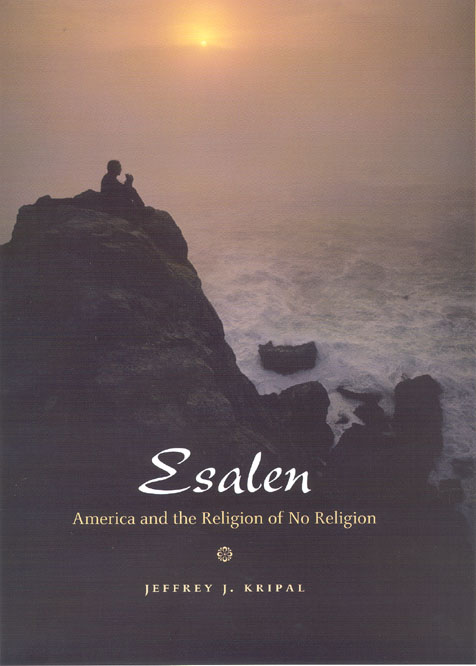Review: Kripal, Esalen
 In the May 6 New York Times Book Review, Diane Johnson reviewed Jeffrey Kripal’s new book Esalen: America and the Religion of No Religion. NYTBR also has an excerpt from the first chapter. Johnson recognizes the Esalen Institute’s powerful social and political influence as one of the American counterculture’s leading centers for alternative and experiential education, as well as its noting its hedonistic reputation:
In the May 6 New York Times Book Review, Diane Johnson reviewed Jeffrey Kripal’s new book Esalen: America and the Religion of No Religion. NYTBR also has an excerpt from the first chapter. Johnson recognizes the Esalen Institute’s powerful social and political influence as one of the American counterculture’s leading centers for alternative and experiential education, as well as its noting its hedonistic reputation:
People of a certain age will remember Esalen, the famous (or infamous) spa in Big Sur on the California coast, founded in the 1960s as a center of the human potential movement. In his book Esalen: America and the Religion of No Religion, Jeffrey J. Kripal describes it as “a utopian experiment creatively suspended between the revelations of the religions and the democratic, pluralistic and scientific revolutions of modernity.” In 1990, someone painted graffiti (unprintable in its entirety here) at the entrance: “Jive … for rich white folk.”
Both descriptions are justified, it turns out. It won’t escape any reader of this interesting book that almost all the players are good-looking and rich, but we learn that along with the sex and drugs with which it was synonymous, the Esalen Institute, as it was formally known, had considerable intellectual seriousness and was unexpectedly influential in global affairs, with leaders like Ronald Reagan and Mikhail Gorbachev having some connection. It was Esalen, for example, that beat out the Rockefeller Foundation and the Council on Foreign Relations, among others, to be the sponsors of Boris Yeltsin’s 1989 visit to America, during which he experienced his famous conversion to capitalism in a Texas grocery store.
In addition to the material posted in the NYTBR we have our own excerpt from the book: “Totally on Fire: The Experience of Founding Esalen.”